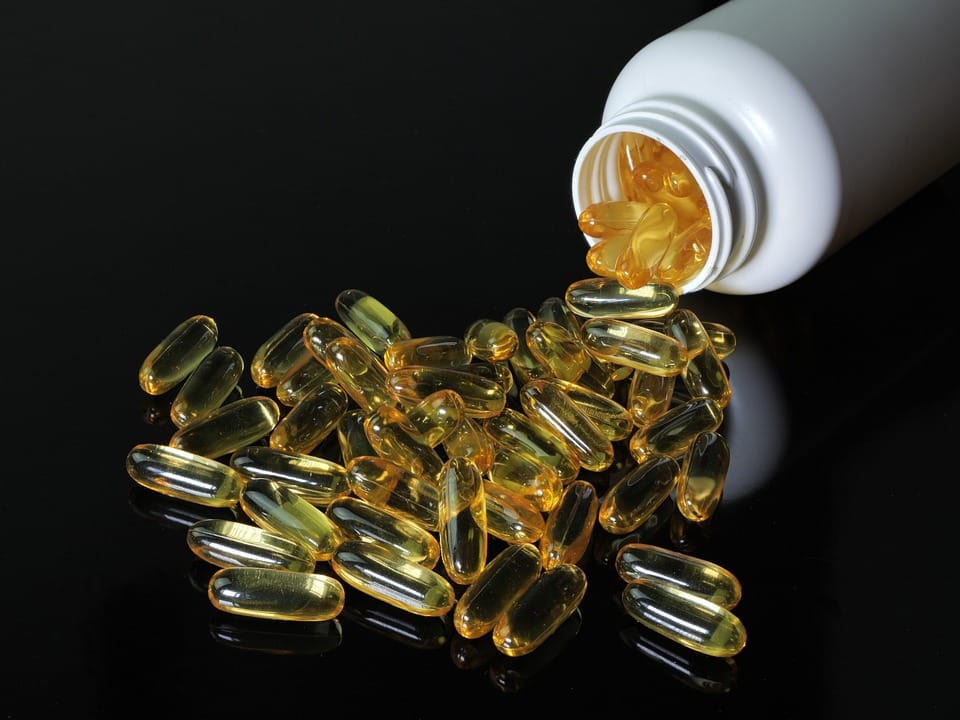In autumn, the number of sunny days decreases sharply; accordingly, people try to compensate for the lack of light by taking vitamin D, popularly called the sun vitamin. It is believed that this substance is necessary for all residents of the northern regions of the planet, and that it can prevent many diseases. We decided to check what science actually knows about vitamin D.
You need to regularly take a test to determine your vitamin D content and, if you have a deficiency, start taking the vitamin.
Many clinics And laboratories in his list services list analysis for vitamin D content. Websites, dedicated healthy image life, recommend regularly hand over, and if the levels are reduced, immediately start taking vitamin D. “Gazeta.ru” in the article “The Russians were named tests that need to be taken in the fall» with reference to the founder of health-tech projects Olga Osokina, she also mentions a vitamin D test.
Russian Association of Endocrinologists accepted This is the classification of vitamin D content:
- 30–100 ng/ml is an adequate level;
- 20–30 ng/ml – vitamin D deficiency;
- 10–20 ng/ml – vitamin D deficiency;
- below 10 ng/ml - severe deficiency.
Based on these calculations some specialists literally declare about the pandemic of vitamin D deficiency. They blame this on both the climate of the country as a whole and changes in lifestyle - more and more people work in offices or other premises rather than outdoors, travel less on foot, and also meet with friends in indoor spaces, such as restaurants and bars.
However, there is no consensus among foreign experts regarding vitamin content standards. In particular, scientists from Boston University School of Medicine drew attention to the different sensitivities of the reagents used for analysis, and recommended A content above 40 ng/ml is considered healthy, and for children - at least 60 ng/ml. But another group of American scientists, having studied data from the National Health and Nutrition Examination Survey for 2007–2010, came to the conclusion that the existing norm is too high and recommended setting a cutoff threshold of 12.5 ng/ml.
Moreover, the standard level of the vitamin was established by a group of scientists as an arbitrary value, admits in an interview with the New York Times, the head of the study, Cliffard Rosen. At the time of the study, scientists were convinced that a decrease in vitamin D levels always leads to an increase in parathyroid hormone (PTH), which has an extremely destructive effect on bone tissue. To prevent such a negative effect, scientists considered it permissible to choose a high value for the vitamin D content, as well as determine a high preventive dose of 600–800 IU. However, further research has shown that the relationship between vitamin D levels and PTH is not so direct - moreover, PTH was not so dangerous for bone tissue. However, the norms were not revised.
Thus, today experts do not have a consensus on what is considered normal vitamin content, and what can already be considered a pathology. Dr. Stephen Cummings, a research scientist at the California Pacific Medical Center Research Institute, says, "Labs should stop screening for vitamin D levels and no longer recommend vitamin D supplements for everyone, and people should stop hoping that vitamin D supplements will protect them from a range of diseases or make them live longer." At the same time, Cummings stipulatesthat there is an exception - for patients with celiac disease, Crohn's disease and those who live in harsh climatic conditions and are not able to consume vitamin D with food through grains and dairy products, taking the vitamin is indeed indicated.

Mostly not true
Taking vitamin D reduces the risk of fractures and osteoporosis
Vitamin D counts important substance For protection our bones from fractures, as well as for prevention development of osteoporosis - a disease characterized by a decrease in bone density and strength.
One of the largest studies on vitamin D called VITAL, it began to be carried out in the USA in 2010, and is planned to be completed by 2025. Scientists are observing 25,871 participants. The volunteers are divided into four groups: the first takes vitamin D and omega-3, the second takes vitamin D and a placebo instead of omega-3, the third takes real omega-3, but a placebo instead of vitamin D, and the fourth takes two placebos. Neither the study participants themselves nor the doctors assessing their health status know who is in which group. The medication phase lasts just over five years, the rest of the time participants are under the supervision of specialists. In 2020, scientists published the first findings of the study. It turned outthat taking vitamin D and omega-3 didn't prevent participants' risk of falls and fractures. In addition, scientists noted that taking these substances:
— didn't reduce risk of breast, prostate or colorectal cancer;
— did not reduce the risk of developing cardiovascular diseases;
— didn't contribute slowing down the decline in cognitive abilities;
- did not reduce the risk of heart attack, stroke or death from cardiovascular disease;
— didn't reduce frequency and intensity of migraines;
— didn't provide effects on participants' weight, BMI, bone density, and obesity rates;
- did not reduce the risk of developing age-related macular degeneration (the most common cause of irreversible central vision loss among older adults);
— didn't reduce joint pain in older participants.
In addition to VITAL, other large studies have been conducted around the world to determine whether preventive vitamin D supplementation can protect against osteoporosis and reduce the risk of fractures. However, scientists did not come to a common conclusion. There are studies in which taking vitamin D reduced risk of falls and fractures, other studies have demonstrated it uselessness, and in some even the placebo group fell I broke bones less and less frequently. Therefore, it is premature to speak unequivocally about the absolute benefits or at least safety of taking large doses of vitamin D for the prevention of osteoporosis.

This is not accurate
Taking vitamin D reduces the risk of developing cancer
Vitamin D is also credited with tumor suppressor properties. Reported, that “it affects the metabolism of glucose in cancer cells, especially in breast cancer in women.” It is also stated that “colon (colorectal) and liver cancers are neutralized by increased doses of vitamin D and its compounds.” Vitamin D include in the so-called anti-cancer menu, and “Moscow 24” published material entitled “Vitamin That Prevents Colon Cancer Named.”
The VITAL study, already mentioned above, didn't find There is evidence that taking vitamin D reduces the risk of breast, prostate or colorectal cancer. Of the 12,927 participants taking vitamin D, 793 (6.1%) were diagnosed with cancer. There were 12,944 people in the placebo group, 824 of whom developed cancer (6.3%). As can be seen from these figures, the difference was only two tenths of a percent, which is not considered a statistically significant change. However, taking vitamin D reduced cancer mortality itself by 17% in this study. Scientists report that more research is needed to determine whether high-dose vitamin D supplementation is necessary for people who have already been diagnosed with cancer.
To the absolutely opposite conclusions Australian specialists from the Queensland Institute of Medical Research came. The experiment involved 21,315 people, of whom 10,662 received vitamin D and 10,653 received a placebo. During the observation period (the average intervention time was five to seven years), 1,100 people died from various causes, of which 538 took a placebo, and 562 took a real vitamin, that is, taking the supplement increased the risk of overall mortality by 0.22%. At the same time, mortality from cancer was 15% higher in the group taking the real vitamin.
Japanese scientists focused on the effect of vitamin D exclusively on already diagnosed gastrointestinal cancer. They recruited 417 patients (esophageal cancer, 10%; stomach cancer, 42%; colorectal cancer, 48%) and gave them the real vitamin or a placebo for several years (median follow-up, three and a half years). There was no statistically significant improvement in five-year survival (the main prognostic indicator for cancer) in the intervention group. To similar conclusions American doctors also came. They narrowed the study to a single type of cancer—metastatic colorectal cancer—and focused on patients receiving chemotherapy. The addition of high doses of vitamin D during treatment did not significantly improve progression-free survival.
Thus, vitamin D does not appear to affect the risk of cancer (one study shows a statistically insignificant increase in incidence, another a statistically insignificant decrease). As for whether vitamin D can prolong the life of those who have already been diagnosed with cancer, scientists disagree radically. More research is needed. However, judging by studies, vitamin D does not affect the progression of gastrointestinal cancer.

This is not accurate
Taking vitamin D is necessary for the prevention and treatment of coronavirus infection
During pandemic new coronavirus infection vitamin D entered in many recommendations. In different versions offered start taking it to prevent a disease or to reduce risk of complications.
Separate research And observations demonstrated the following relationship: the lower the patient’s vitamin D level before illness, the more severe the symptoms were. Scientists have suggested that the effect of vitamin D on the severity of COVID-19 is due to its ability to stimulate the immune system to fight pathogenic viruses. However, further research refuted this hypothesis.
British doctors taken away more than 6,000 volunteers who had not previously taken vitamin supplements regularly. They then determined the vitamin levels of half the volunteers and asked them to take supplements in varying doses. It turned out that the vitamin group got sick no less often and no more easily than those who did not take supplements. Similar study design held also Norwegian doctors. It involved 34,000 volunteers, some of whom received vitamin D, and some of whom received a placebo. They did not find a decrease in the frequency or severity of infections, including coronavirus, in the reception group. The Cochrane Library, one of the largest resources on evidence-based medicine, having analyzed Spanish and Brazilian experiments, also reportsthat the protective role of vitamin D against coronavirus has not been proven.

Not true
Taking Vitamin D May Treat Depression
Additives with sunshine vitamin attributed to one more thing healing property - supposedly the replenishment of this substance in the body is capable of improve people's mood and treat them from depression.
Vitamin D really plays important role in the functioning of nerve cells, and clinical depression tied with disruption of their work. It would be logical to assume that a lack of vitamin will lead to disruptions in work, which will affect mental health. In 2018, Canadian scientists from McMaster University held a meta-analysis of existing studies on the relationship between low vitamin D levels and the risk of developing clinical depression. Low levels of this substance did correlate with a higher prevalence of depression. However, correlation is not causation. It is possible that people with depression may have lower levels of vitamin D because they eat less well and exercise less while in this psychological state. Moreover, the researchers noted that the experiments analyzed relied on small samples, measured different levels of vitamin deficiency, and used different questionnaires for self-reporting symptoms of depression, so their conclusions may not be accurate.
American scientists conducted an experiment that was more correct in methodology. They taken away 18,353 volunteers, none of them had symptoms of depression at the time of recruitment. Over the course of five years, some of them received high doses of vitamin D, and some received a placebo. The risk of depression in both groups turned out to be the same; prophylactic intake of the vitamin did not reduce the incidence of depression.
The vitamin did not show good results for the treatment of already diagnosed depression. Having analyzed Based on data from six studies involving a total of 1,203 patients with already diagnosed depression, researchers were unable to confirm that a vitamin D supplement improved their psychological well-being more effectively than a placebo. Thus, taking vitamin D can neither protect against depression nor help treat it.

Not true
Cover image: Maxpixel
Read on the topic:
- Is it true that vitamin C helps cure colds?
- Is it true that in the winter and spring months it is necessary to prevent vitamin deficiency?
If you find a spelling or grammatical error, please let us know by highlighting the error text and clicking Ctrl+Enter.






